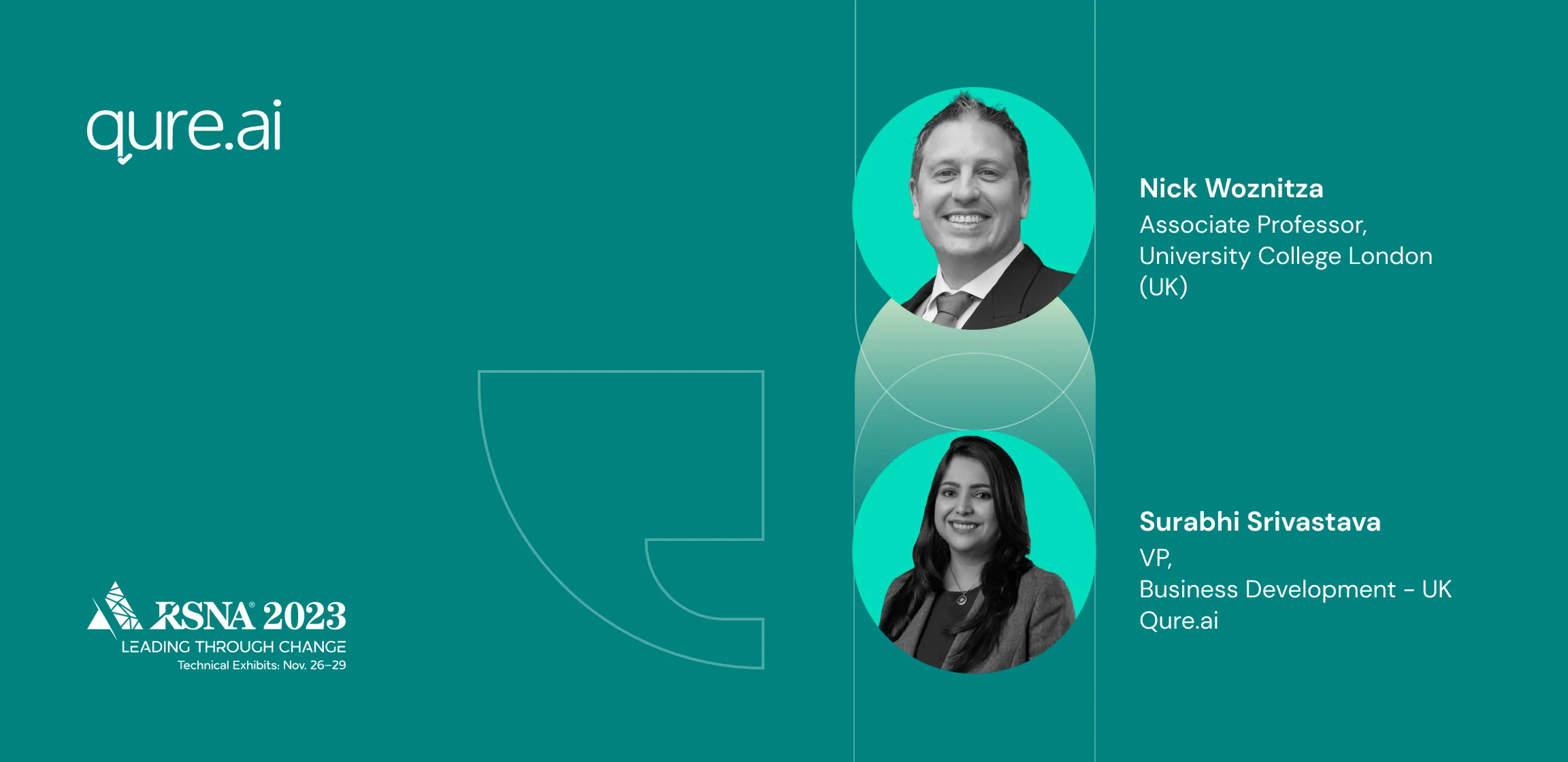The conversation at RSNA 2023 between Qure.ai’s Surabhi Srivastava and Dr. Nick Woznitza, Consultant Radiographer & Clinical Academic at University College London Hospitals NHS Foundation Trust & Canterbury Christ Church University, focuses on AI-driven lung cancer diagnosis, the challenges in the current lung cancer pathway, and the potential of AI in improving diagnostic efficiency.
Back
Introduction:
Surabhi Srivastava introduces Dr. Nick Woznitza, who has significant experience in radiographer reporting and AI, particularly in lung cancer diagnosis.
Key Points:
- Challenges in Lung Cancer Diagnosis: Dr. Woznitza explains the difficulties in diagnosing lung cancer, such as late presentation, nonspecific symptoms, and prevalence in deprived populations. These factors, combined with NHS capacity constraints, lead to delayed diagnoses.
- Lung Cancer Screening: The discussion moves to lung cancer screening's role and limitations. Despite robust evidence supporting lung cancer screening, only a quarter of lung cancers might be detected this way, stressing the importance of chest X-rays in symptomatic diagnosis.
- radioX Trial: Dr. Woznitza shares insights from the radioX trial funded by Cancer Research UK, which reduced the time to lung cancer diagnosis significantly by offering immediate chest X-ray results and CT scans for suspicious cases.
- Lung IMPACT Trial: The Lung IMPACT trial, a multi-site randomized trial, is exploring how AI can assist in identifying abnormal chest X-rays, prioritizing them for review, and potentially reducing diagnosis time.
Conclusion:
The conversation concludes with the anticipation of interim analysis results from the Lung IMPACT trial in spring 2024, highlighting the potential of AI in revolutionizing lung cancer diagnosis and treatment pathways, particularly in the context of the NHS's current challenges.
